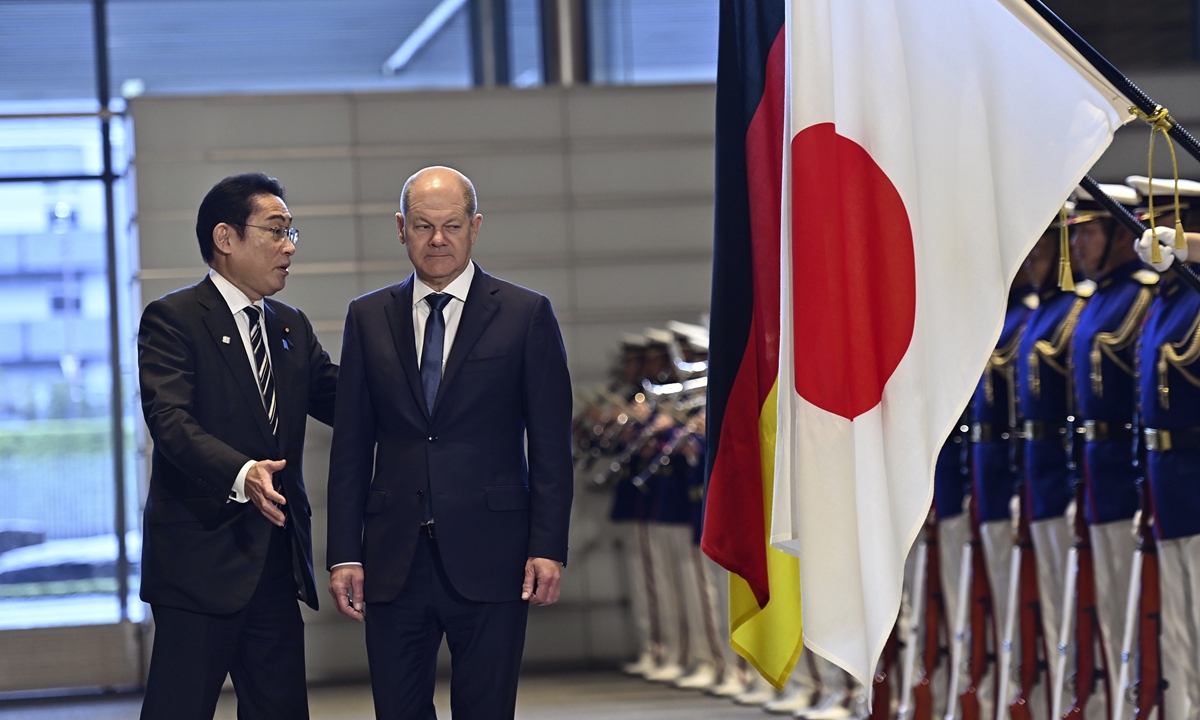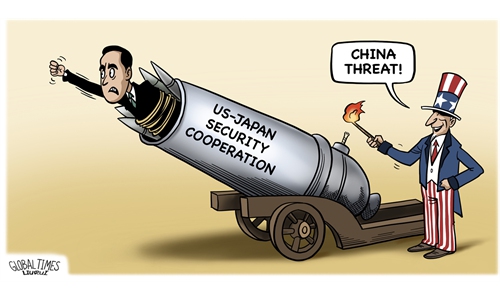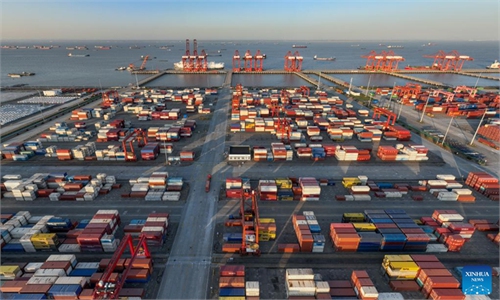Japan-Germany cooperation 'unable to realize decoupling' from China
Tokyo's push for outside forces' presence in Asia may bring more turbulence: analyst

German Chancellor Olaf Scholz (right) and Japan's Prime Minister Fumio Kishida attend an honor guard welcoming ceremony at the prime minister's official residence in Tokyo Saturday, March 18, 2023. Photo: VCG
Western and Japanese media have hailed the outcome that Japan and Germany reached, to strengthen economic and defense ties to "cope with" China's growing influence and global security concerns, while analysts warned that any attempt to push decoupling from China may meet with obstacles, and Japan's move to introduce more interference from the EU into Asia will drag the region into turbulence, against which regional countries should be highly vigilant.
German Chancellor Olaf Scholz and Japanese Prime Minister Fumio Kishida on Saturday held the first round of government consultations in Tokyo and released a joint statement. After the meeting, Kishida told a joint news conference that the two sides agreed to strengthen supply chains in minerals, semiconductors, batteries and other strategic areas, in order to "counter economic coercion, state-led attempts to illegally acquire technology and non-market practices," the Associated Press reported.
Some Western media claimed the Japan-Germany statement was a form of cooperation to cope with the "China threat," which neglected the different attitudes that Japan and Germany have held toward China, analysts said.
Recently, Japan has intensified interaction with the US-led NATO, aiming to pull NATO members, especially Germany, into Asia to "contain China" by strengthening cooperation on military and security affairs.
However, despite voices from the EU to decrease dependence on China, some EU members, especially Germany, have held a mild attitude toward China as many of its enterprises have a wider interest in China, Xiang Haoyu, a research fellow at the China Institute of International Studies, told the Global Times.
The joint statement also showed that the consensus reached by Germany and Japan is at a general level to safeguard what they called the rule-based international order, free Indo-Pacific cooperation and an emphasis on shared values. It remains to be seen what tangible and practicable measures the two sides will take in relation to China, said Xiang.
Scholz went to Japan with six ministers for government-to-government talks and some media interpreted his second trip to Japan in less than a year as an effort to "boost its profile in the Asia-Pacific region, ahead of the G7 summit being hosted this May by Japan in Hiroshima."
The German leader previously visited Japan in November 2022 and then paid a visit to China, in which Scholz again made clear his opposition to "decoupling."
As the US has beefed up overall strategic competition with China and is determined to suppress China in industrial and supply chains and high-technology fields, companies in both Germany and Japan will also suffer amid the US' push for decoupling, given their close trade exchanges with China. By strengthening coordination, the two countries may want to hedge their risks, said Xiang.
As G7 president this year, Japan is fully using the chance to expand its international influence and show its "leadership." Aside from meeting with South Korean President Yoon Seok-yeol and advancing cooperation with Germany, Kishida is also scheduled to visit India, which will host G20 summit this year with the ambition to connect the G7 and G20 to further contain China and Russia, said analysts.
Japan has actively moved to introduce more presence by EU members in Asia, for example, in the military, it pulls the UK with the Reciprocal Access Agreement (RAA); in the economy, it attempts to lure Germany.
Together with the US-Japan and US-Japan-South Korea alliances, AUKUS and other mechanisms, it can work with the US to beleaguer China, Da Zhigang, director of the Institute of Northeast Asian Studies at Heilongjiang Provincial Academy of Social Sciences, told the Global Times.
Japan has increased its military cooperation with the US and several European nations by hyping so-called escalating threats from China and North Korea. Last year, the Kishida administration adopted a new national security plan to boost its potential to strike back, which is a significant departure from the nation's post-war self-defense-only concept.
Da criticized Japan's moves and said that relying on hegemony to draw small cliques and military alliances with the purpose of targeting other counties is a Cold War mentality, and it is not conducive to regional and global peace, stability and development.
The expert called on regional countries to hold on to true multilateralism and keep vigilant against being coaxed into choosing sides under the guise of cooperation.



